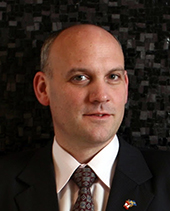Skip to content. | Skip to navigation
Personal tools

- Contact Us |
- Seminars |
- Donate

Lunenfeld- Tanenbaum
Research Institute
Mount Sinai Hospital
Joseph and Wolf Lebovic Health Complex
600 University Avenue
Toronto, Ontario
M5G 1X5
Tel.: 416-586-4800
► Web of Science Researcher ID
R-5147-2019
Dr. Stephen G. Matthews, PhD, FCAHS
SENIOR INVESTIGATOR
Stephen G. Matthews is Professor of Physiology, Obstetrics and Gynaecology and Medicine at the University of Toronto and Director of Research at the Alliance for Human Development, Lunenfeld-Tanenbaum Research Institute. Professor Matthews received his PhD from the University of Cambridge, UK, and was appointed to the University of Toronto in 1996. He served as Chair of the Department of Physiology from 2007-2014. He holds a Canada Research Chair (Tier 1) in Early Development and Health and was elected a Fellow of the Canadian Academy of Health Sciences in 2019.
His research is focused towards understanding how the fetal environment affects developmental trajectories leading to modified neurologic and endocrine function. He has established that the effects of certain fetal exposures can extend across multiple generations. With a focus on epigenetics, his research team is determining the molecular mechanisms by which such ‘programming’ can occur. In a parallel program of study, his group is investigating drug and hormone transport mechanisms in the placenta and fetal brain, with a focus on developing novel treatments to protect the fetus.
He has secured over $30M in research funding, published over 250 full papers and has received more than 250 invitations to lecture around the world. He has won a number of research awards including the 2012 Presidents’ Achievement Award from the Society for Reproductive Investigation (SRI) and the 2014 Cannell Memorial Lectureship in Obstetrics and Gynaecology. He has also won teaching awards including the 2013 W.T. Aikins Award for Teaching Innovation. Professor Matthews has served on Editorial Boards of several Journals including Endocrinology and Journal of Neuroendocrinology. He has chaired CIHR peer-review panels and served as a member of the Advisory Board of the CIHR Institute for Human Development Child and Youth Health. He is a member of Council for DOHaD International and is currently President of SRI. In 2015, he co-founded DOHaD Canada and served as elected President (2018-23).
Professor Matthews is committed to translating fundamental research. He co-founded the MAVAN program, which followed neurocognitive development in children following adverse early experience. He is currently director of the Ontario Birth Study, as well as a large preconception intervention study (HeLTI) in India focused towards improving maternal, infant and child health.
At a Glance
Dr. Matthews holds a Canada Research Chair (Tier 1) in Early Development and Health and is a Fellow of the Canadian Academy of Health Sciences. He leads major international pregnancy intervention studies (HeLTI) in India and Africa, aimed at improving maternal and child health.
- Dr. Matthews is also Director of the Ontario Birth Study and c
- o-founder of the MAVAN program on neurocognitive development in children facing early adversity.
Previously, he served as president of the Society for Reproductive Investigation (2020-2024) and as president of DOHaD Canada (2018–2023), which he co-founded.
- Dr. Matthews' research focuses on integrating basic, translational, and clinical research to enhance the long-term health of pregnant women and their children.
-
-
Key Areas of Study:
Impact of the fetal environment on brain development.
Mechanisms by which stress and glucocorticoids affect brain development, influencing stress responsiveness and behaviors in offspring.
- Transport mechanisms that protect the developing brain.
Major Research Activities
Dr Matthews’ research is focused towards understanding how the fetal environment affects developmental trajectories leading to modified neurologic and endocrine function. He has established that these effects can extend across multiple generations and are linked to altered susceptibility to chronic disease. His research team is determining the mechanisms by which such ‘programming’ can occur. In parallel, his group is investigating transport mechanisms in the placenta and developing brain, with a focus on strategies to protect the fetus. Dr Matthews is also deeply committed to translating fundamental research. He was founding co-director of the MAVAN program, which followed neurocognitive development in children following adverse early experience. He is currently co-leading large pregnancy intervention studies (Healthy Life Trajectories Initiative; HeLTI) in India and Africa focused towards improving maternal, infant and child health. His research has been funded by CIHR, NSERC and the Gates Foundation, and he has published over 250 research papers.



